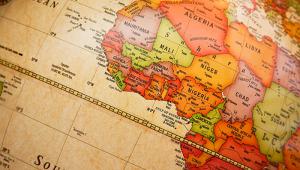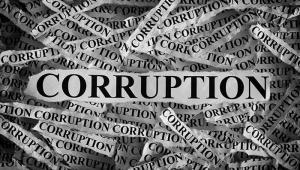In its 2018 Corruption Perceptions Index, TI revealed that over two thirds of the 180 countries surveyed scored less than 50 on a scale from 0 (highly corrupt) to 100 (least corrupt).
The average score in the index was 43 – the same as in previous years.
The report released today argues that the continued failure to tackle corruption “is contributing to a crisis of democracy around the world”.
Patricia Moreira, TI managing director, said: “With many democratic institutions under threat across the globe – often by leaders with authoritarian or populist tendencies – we need to do more to strengthen checks and balances and protect citizens’ rights.
“Corruption chips away at democracy to produce a vicious cycle, where corruption undermines democratic institutions and, in turn, weak institutions are less able to control corruption.”
This comes as a number of countries around the world, including Italy and the US, have seen a rise in populism – which can weaken institutions – in recent years.
The index found that only 20 countries have “significantly improved” their scores since 2012, including Estonia and Côte D’Ivoire, while 16 countries “significantly declined”, including Australia, Chile and Malta.
Denmark and New Zealand top the index with 88 and 87 points, respectively. Somalia, South Sudan and Syria are at the bottom of the index, with 10, 13 and 13 points, respectively.
The highest scoring region is Western Europe and the European Union, with an average score of 66, while the lowest scoring regions are sub-Saharan Africa, with an average of 32, and Eastern Europe and Central Asia, with 35.
The organisation said cross analysis with global democracy data revealed a link between corruption and the health of democracies. Full democracies score an average of 75 on the index while flawed democracies score an average of 49.
The US lost four points since last year, with a score of 71, dropping out of the top 20 countries on the index for the first time since 2011.
“The low score comes at a time when the US is experiencing threats to its system of checks and balances as well as an erosion of ethical norms at the highest levels of power,” TI said.
Brazil also dropped two points since last year to 31, earning its lowest score in seven years. The country’s new president has made promises to end corruption but has also announced a number of populist policies.
Delia Ferreira Rubio, chair of TI, said: “Corruption is much more likely to flourish where democratic foundations are weak and, as we have seen in many countries, where undemocratic and populist politicians can use it to their advantage.”
The organisation called on governments to strengthen institutions responsible for maintaining checks and balances, and ensure their ability to operate without intimidation.
It wants them to shorten the time it takes from the passing of anti-corruption legislation to its implementation and enforcement, and to support civil society and free, independent media.







